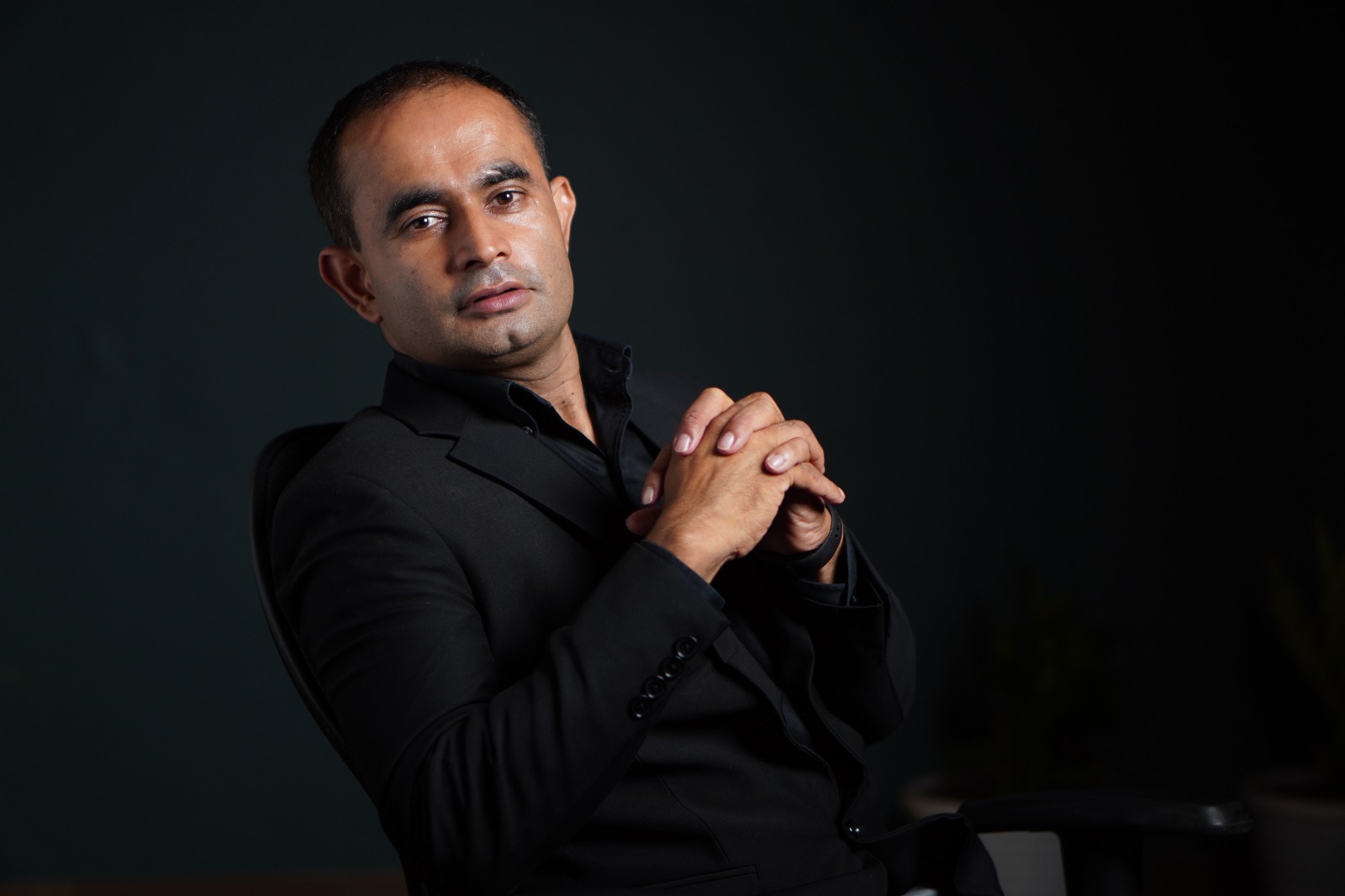In the high-stakes world of fintech, many founders chase the future—AI dashboards, blockchain integrations, next-gen interfaces. And while these innovations have their place, few ask the simple, essential question: What do business owners actually need right now?
Sabeer Nelli asked that question early—and never stopped answering it.
As founder and CEO of Zil Money, a financial platform built for small and mid-sized businesses, Sabeer built more than a product. He built peace of mind. What started as a personal solution to his own operational struggles evolved into a powerful, trusted tool now used by over a million businesses across the U.S.
But the secret to his success isn’t just code or funding. It’s balance. A balance between innovation and empathy. Between long-term vision and short-term clarity. Between solving for complexity—and choosing not to overcomplicate.
This is the story of how Sabeer Nelli mastered the art of building without burning out the user, and how his mindset continues to shape the future of fintech in practical, purposeful ways.
From Daily Grind to Digital Simplicity
Sabeer’s entrepreneurial journey didn’t begin in finance—it began in operations.
While managing Tyler Petroleum, a chain of gas stations and retail locations in Texas, he wore every hat: operator, accountant, payroll manager, and more. Every day, he faced the pressure of running lean teams, meeting payroll, handling vendor relationships, and keeping finances afloat.
But what frustrated him most wasn’t the work itself—it was the tools.
Everything felt fragmented. Check printing required expensive stock. ACH payments took too long. Vendor tracking was manual and slow. Even accessing multiple bank accounts meant logging into multiple portals. And mistakes were costly—both financially and emotionally.
Instead of accepting that chaos, Sabeer did what few do: he paused. He reflected. And he built.
His first product? A way to print checks from a standard printer. Simple. Effective. Born out of need.
And that practical mindset shaped every decision he’s made since.
Real Business, Real Results
Let’s look at Tony, who owns a landscaping company in Georgia. He used to manage payroll and invoicing manually, using a mix of spreadsheets, emails, and a bank portal. Each month, it took him 10–15 hours to stay on top of payments—and every mistake created tension with staff or clients.
When he discovered Zil Money, things changed quickly:
- Checks could be printed from the office without special paper.
- ACH transfers were simplified into just a few clicks.
- Payroll by credit card gave him breathing room when cash flow was tight.
- Reconciliation tools saved him from digging through statements.
The platform didn’t just save him time. It gave him a sense of control—a feeling most entrepreneurs rarely get from financial software.
That’s Sabeer’s model in action: build tools that help real people, doing real work, every day.
Key Principles Behind the Zil Money Philosophy
Sabeer Nelli doesn’t just lead a product—he leads by principle. His decisions are grounded in a framework that others can learn from, especially those trying to grow ethical, user-first businesses.
- Solve One Pain Point First
Sabeer’s first breakthrough came from solving a narrow but painful issue—check printing. Instead of trying to build a full-suite platform from day one, he started small and solved deeply. That earned trust, which created momentum.
Lesson: You don’t need to solve everything. Solve one thing well, and scale from there.
- Prioritize Utility Over Vanity
While competitors rolled out flashy dashboards and gamified interfaces, Sabeer focused on clarity. Zil Money’s design reflects that: clean, intuitive, and free of distractions. Users don’t waste time—they get work done.
Lesson: A tool isn’t valuable because it’s flashy. It’s valuable because it works.
- Reduce Stress as a Core Feature
Sabeer doesn’t just ask what a feature does—he asks how it makes the user feel. Does it bring relief? Clarity? Confidence? Zil Money’s best features are designed to remove anxiety, not just automate a task.
Lesson: Emotional simplicity is just as important as technical simplicity.
- Listen, Then Build
Zil Money evolves based on real customer feedback. Sabeer and his team constantly listen to support channels, user reviews, and pain points—and then respond with updates. The result? A product that always feels aligned with its users.
Lesson: Build with your audience, not for them.
- Scale Without Losing Sight
As Zil Money grew, it didn’t bloat. It stayed nimble. Each new feature was added only if it aligned with the mission: making business finance less stressful. That discipline is rare—and powerful.
Lesson: Growth isn’t about how much you add. It’s about how well you maintain clarity.
Relatable Simplicity Is the Competitive Edge
Many financial platforms aim for large enterprises, assuming small businesses will adapt. Sabeer flipped that logic. He knew firsthand that most businesses don’t have time to train employees on new systems or integrate multiple APIs.
They want tools that are:
- Self-explanatory
- Affordable
- Fast
- Flexible across different payment needs
Zil Money became successful not because it tried to be everything—but because it became something reliable to the people who needed it most.
And that’s a lesson founders often miss: when you serve the under-served, loyalty follows.
Motivational Conclusion: Build to Relieve, Not Just Impress
Sabeer Nelli didn’t create Zil Money to chase funding or headlines. He created it to solve the very problems that used to keep him up at night. His path wasn’t flashy—but it was focused. It wasn’t overnight—but it was unstoppable.
He reminds us that great businesses aren’t built on hype. They’re built on helping people do hard things more easily.
So, if you’re building something—whether it’s a tool, a service, or a company—ask yourself:
- Am I adding clarity or clutter?
- Am I chasing attention or earning trust?
- Am I making life easier for someone—or just more complicated?
Because the future of fintech—and entrepreneurship at large—doesn’t belong to those who make the most noise.
It belongs to those who solve with care, scale with purpose, and never forget who they’re building for.
Just like Sabeer Nelli did—and still does.

















